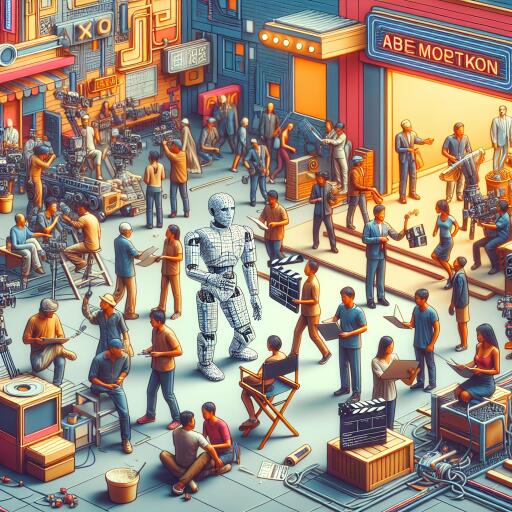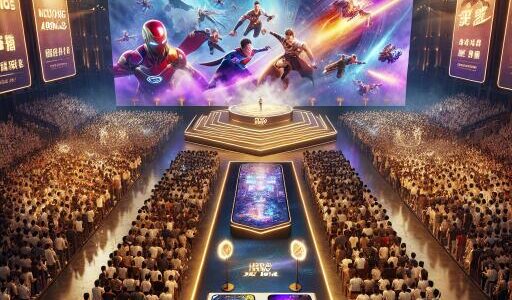Exploring the Impact of AI in Revolutionizing Hong Kong’s Film Industry
The film industry in Hong Kong is undergoing a significant transformation, thanks to the innovative application of artificial intelligence (AI). With AI’s capacity to create virtual locales that are uncannily realistic, the logistical nightmare of transporting cast and crew across the globe for shoots could soon be a relic of the past. While the technology promises cost-cutting and efficiency, the industry faces questions about the broader implications of AI on creativity and authenticity.
In a spacious studio nestled in Tseung Kwan O, Hong Kong, Roger Proeis, a visionary in film production, stands amidst a seemingly bustling railway station. This station, however, is a product of advanced AI technology, crafted within the confines of Proeis’s 5,000 square feet studio at Votion Studios. Proeis is among a growing cadre of filmmakers leveraging AI to challenge and evolve traditional filmmaking processes, aiming to reduce expenses and streamline production.
AI’s role extends beyond creating fantastical settings to encompass various facets of film production, from script adjustments to casting and even predicting a movie’s market success. Hollywood has already started to embrace these possibilities, but the reaction in Hong Kong’s film sector is mixed.
Film editor Wong Hoi, with a celebrated career and several awards to his name, recalls working on the critically acclaimed Bodyguards and Assassins. The set, a monumental recreation of early 1900s Hong Kong in Shanghai, cost a staggering HK$50 million ($6.4 million). Today, Wong believes, such grandeur could be achieved with AI, slashing both costs and construction time.
Despite such enthusiasm, skepticism remains. Norman Chan Hok-yan, a seasoned filmmaker and educator, voices concerns that AI technology cannot address the core issues plaguing Hong Kong’s film industry: redundant storylines and an over-reliance on a small pool of stars. Chan argues that the convenience of streaming services and the waning global appeal of Hong Kong cinema underscore the need for innovation in content, not just technology.
John Chong Ching, producer of the iconic Infernal Affairs trilogy, emphasizes the primacy of strong storytelling over technological novelty. Chong’s perspective is that compelling narratives and creative vision should lead, with technology serving to enhance the storytelling, not define it.
Nevertheless, pioneers like James Leung Wah-sang, director at Mutual Workshop, provide a counterpoint with their positive experiences using AI. In one project, a bevy of scenes for a music video, ranging from ancient cathedrals to pirate ships, was generated in mere hours, demonstrating AI’s potential to drastically reduce production timelines and expenses, and perhaps, reshape location scouting altogether.
Amidst these debates, interest in AI within the film industry continues to grow. Proeis envisions Hong Kong evolving into a premier production hub, capitalizing on its blend of technological innovation and creative artistry. His work at Votion Studios showcases the fusion of art, creativity, and tech, paving the way for a new era of filmmaking that remains grounded in human creativity yet leverages the efficiencies of AI.
Academic initiatives, like those at Baptist University, further illustrate the potential symbiosis between technology and creative arts. Projects integrating AI with motion capture and digital avatars are not only redefining film production but also contributing to the preservation of cultural art forms, such as martial arts.
Despite the enthusiasm for technology’s promise, veterans like Tenky Tin Kai-man remind us of cinema’s essence: creativity, originality, and the human touch. As Hong Kong’s film industry navigates the opportunities and challenges posed by AI, the balance between technological and creative forces will shape its future direction, ensuring that the heart of storytelling remains intact.
As AI continues to redefine the horizons of film production, the journey of Hong Kong’s filmmakers – balancing innovation with tradition – mirrors the broader quest across industries to harness technology without losing the soul of their craft.








